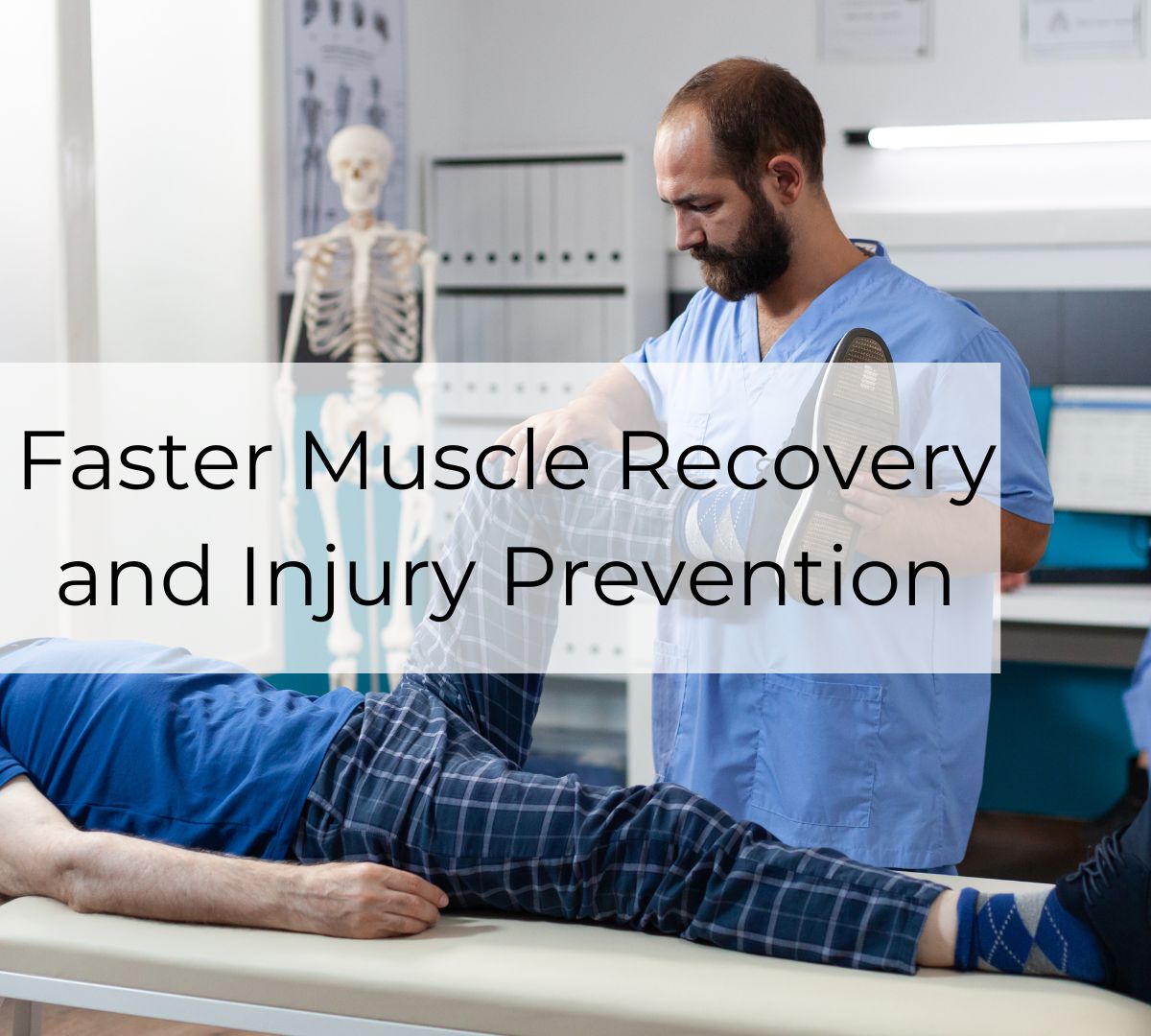Muscle recovery is more than just resting after a workout—it’s the key to building strength, improving performance, and preventing injuries. Whether you’re a seasoned athlete or just starting your fitness journey, understanding the best ways to help your muscles recover can make all the difference. This guide covers essential tips to speed up muscle recovery and keep you on track toward your fitness goals.
Why Muscle Recovery Matters
When you work out, your muscles undergo stress and develop tiny tears in the muscle fibers. Your body heals these tears during recuperation, fortifying and strengthening your muscles. But if you skip out on proper recovery, it can lead to burnout, injuries, and even long-term health problems like weakened immunity and hormonal imbalances.
Post-workout soreness, often known as delayed onset muscle soreness (DOMS), is a common sign that your muscles are repairing themselves. While it’s tempting to push through the pain, ignoring the signals from your body can lead to chronic fatigue and longer recovery times. Taking rest days is crucial, especially as you age, when your body needs more time to recover.
Key Factors Affecting Muscle Recovery Time
Several factors influence how quickly your muscles recover after exercise:
- Workout Intensity: High-intensity workouts create more muscle damage, which means your body needs more time to repair.
- Fitness Level: The more conditioned you are, the faster your muscles can bounce back.
- Age: As you get older, the recovery process slows down, making it even more important to focus on effective recovery strategies.
- Health Status: Recuperation is greatly influenced by your general state of health. If your body is already fighting stress or illness, recovery will take longer.
Balancing intense exercise with adequate rest and recovery methods is essential for preventing overtraining and keeping your muscles in top shape.
Effective Recovery Methods
Recovery comes in two primary flavors: active and passive. Both play vital roles in muscle repair and should be part of your routine depending on your needs and situation.
- Active Recovery: Low-intensity exercises like walking, stretching, or gentle yoga help increase blood flow and remove waste products from your muscles, speeding up recovery.
- Passive Recovery: Complete rest allows your body to heal naturally, preventing overtraining and giving your muscles the downtime they need to rebuild.
Finding the right balance between active and passive recovery will help optimize your recovery process.
Active Recovery
Active recovery involves light physical activities that keep you moving without straining your muscles. This can include:
- Gentle Yoga: Promotes flexibility and circulation.
- Walking or Cycling: Enhances blood flow and reduces muscle fatigue.
- Stretching: Alleviates soreness and improves muscle repair.
Incorporating these activities into your routine, especially on rest days, can help your muscles recover faster and prepare you for your next workout.
Passive Recovery
Resting completely is sometimes the finest thing you can do for your body. Whether it’s spending the day relaxing with a book or catching up on your favorite TV shows, passive recovery allows your muscles to heal and prevents overtraining. Both active and passive recovery methods are important for long-term muscle health.
Nutrition for Optimal Muscle Repair
What you eat directly impacts how well your muscles recover. Proper nutrition provides the building blocks your body needs to repair and grow muscle tissue. Key nutrients include:
- Protein: Essential for muscle repair, protein provides the amino acids your body needs to rebuild muscle fibers. Incorporate high-quality protein sources like eggs, lean meats, and plant-based proteins into your diet.
- Carbohydrates: After exercise, your body needs carbs to replenish glycogen stores and support muscle recovery. Starchy vegetables and whole grains are excellent sources.
- Healthy Fats: Reduce inflammation and support overall health, aiding in muscle repair.
Don’t forget hydration—staying properly hydrated is crucial for muscle recovery. Water helps regulate body temperature, delivers nutrients to muscles, and flushes out toxins. Aim to drink at least 2 liters of water a day, and consider hydrating with electrolyte-rich drinks like coconut water.
Sleep and Recovery
Sleep is one of the most powerful tools for muscle recovery. During deep sleep, your body releases growth hormones that are essential for tissue repair and muscle growth. If you’re regularly engaging in intense workouts, you may need more than the standard 7-9 hours of sleep each night to fully recover.
Quality sleep also helps reduce inflammation, lowers stress levels, and boosts your immune system—all of which contribute to faster recovery. Prioritizing a consistent sleep schedule and creating a calming bedtime routine can significantly improve your muscle recovery.
Techniques to Reduce Muscle Soreness
Muscle soreness is a natural part of the recovery process, but there are ways to reduce it and speed up your recovery. Some effective techniques include:
- Foam Rolling: Helps release muscle tension, improve flexibility, and accelerate recovery by applying pressure to sore muscles.
- Massage Therapy: Enhances blood circulation, reduces soreness, and promotes relaxation, making it a great addition to your recovery routine.
- Compression Garments: These can help reduce muscle soreness and swelling while promoting blood flow.
- Cold and Heat Therapies: Alternating between cold and hot treatments can alleviate soreness and promote muscle repair. Cryotherapy (cold therapy) reduces inflammation, while heat therapy increases blood flow and helps muscles relax.
Monitoring Your Recovery
Keeping track of your recovery is just as important as the recovery itself. Tools like heart rate variability (HRV) trackers can help you monitor how well your body is recovering and prevent overtraining. When HRV increases, it generally indicates that your body is well-recovered and ready for your next workout. Wearable devices can make this process easier by providing real-time insights into your recovery status.
Common Recovery Mistakes to Avoid
Avoid these common mistakes to ensure your muscles recover effectively:
- Overtraining: Pushing yourself too hard without enough rest can lead to injuries and burnout.
- Poor Nutrition: Eating junk food and consuming excessive sugar or alcohol can slow down recovery by causing inflammation.
- Sleep Deprivation: Skimping on sleep impairs your body’s ability to repair muscle tissue and increases stress.
- Overuse of Painkillers: While painkillers can temporarily alleviate soreness, they can also interfere with your body’s natural adaptation to exercise.
Prioritizing rest, proper nutrition, and quality sleep will help you avoid these pitfalls and support faster muscle recovery.



